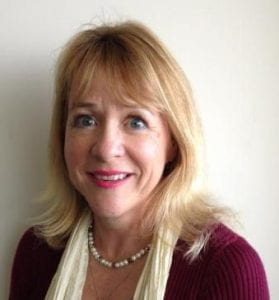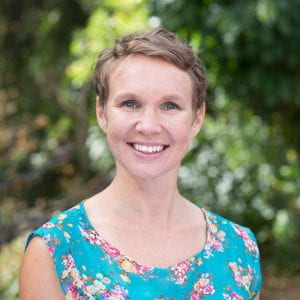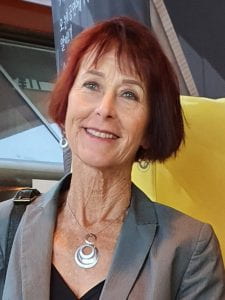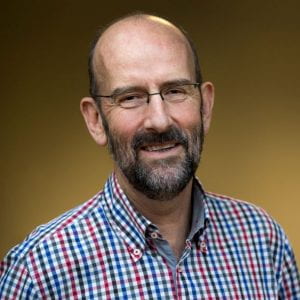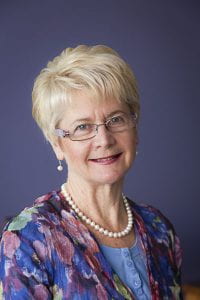Associate Professor Elissa Burton

Dr Elissa Burton is a Level 2 Accredited Sports Scientist who works as an Associate Professor in the Curtin School of Allied Health at Curtin University (Perth, Western Australia). Elissa co-leads the Australian arm of the ReAble Network and is a current National Health and Medical Research Council Investigator grant holder. She has received over $6.1 million in grants and published 83 peer reviewed journal articles/book chapters. Elissa’s expertise in reablement focuses on promoting and delivering physical activity and/or exercise with older people to improve or maintain function and improve quality of life. She has collaborated with Australian, German, Danish, New Zealand, Norwegian, Canadian and Irish colleagues to conduct reablement research.
https://staffportal.curtin.edu.au/staff/profile/view/E.Burton
Hilary is an Occupational Therapist with broad experience across the ageing, disability and housing sectors in the United Kingdom and Australia. Her passion rests with wellness and reablement focused service models in community care where she has been fortunate to work in various roles including clinician, working with researchers to develop reablement services, project lead and service manager. Hilary sees supporting older people to retain and regain their independence and enable people to do what they have reason to value is a human right.
Since emigrating to Australia in 1996 Hilary has worked in a variety of roles including:
• developing and pioneering the implementation of the nationally recognised Silver Chain reablement service – The Home Independence Program (HIP) and in partnership with the WA Home and Community Care program established the WA Home and Community Care Program (WA HACC) Wellness Approach.
• working with WA Health to develop the WA Regional Assessment Services and embed reablement strategies at the entry point to community care as part of the assessment process
• since joining the Independent Living Centre WA in 2014 operational management of the Regional Assessment Services and the establishment of an Allied Health Service for older people which provides short term, targeted and goal focused interventions
• oversight of projects including the scoping of a best practice Home Modifications and Assistive Technology model to actively improve reablement outcomes for HACC clients
Hilary is currently employed at the Independent Living Assessment Incorporated as Principal Advisor Wellness and Reablement.
Hilary has presented extensively on wellness and reablement and has co authored peer reviewed papers on the Home Independence Program with Professor Gill Lewin and on Falls Prevention in Community Care with Dr Elissa Burton.
National Rethinking Reablement forum
KeepAble | Rethink Reablement forum
Reablement Conversations with Hilary O’Connell | KeepAble
Dr Mia Rahja
Miia Rahja is an occupational therapist and post-doctoral research associate with Flinders Health and Medical Research Institute, Flinders University, Adelaide. She is passionate about developing, implementing and evaluating programs aimed at improving participation and care options for people living with cognitive decline and dementia.
Miia completed her PhD in 2019 evaluating the implementation of an evidence-based reablement program for people with dementia in Australia. Her mixed methods work showed that the uptake of these programs could advance dementia care in Australia, including upskilling occupational therapists to deliver evidence-based programs in the community, while producing societally and economically positive outcomes.
Miia has also developed and teaches a dementia specific topic, “Improving the wellbeing of people with dementia and their caregivers”, for a postgraduate course in Clinical Rehabilitation at Flinders University.
https://www.flinders.edu.au/people/miia.rahja
Dr Daniel Doh
Daniel Doh (PhD) is a social worker and a social policy analysist. Daniel is a lecturer at Western Sydney University where he teaches various courses in social work, social policy, and research methods. He provides professional development training in program evaluation, social protection system designs, and tailored social science research designs training on various international capacity building platforms. Daniel has worked in different country contexts including Ghana, Kenya, Nigeria, Sierra Leone, Liberia, and Australia. He is interested in research on ageing and aged care services for culturally and linguistically diverse communities, quality of life in old age, informal carers of older people, social protection, and program evaluation.
Dr Gill Lewin
Although recently retired, Gill is Adjunct Professor in the School of Nursing, Midwifery and Paramedicine at Curtin University; Board member of the Australian Association of Ageing (AAG); and, a trustee of the AAG Research Trust. Gill has been involved in research on ageing since she joined Silver Chain, a large Australian community health and aged provider, as Research Manager in 1993. While she researched and published on a diverse range of topics, Gill’s especial interest was the development and testing of models that promote the independence of older people. Eight of her articles are on restorative home care/reablement.
Professor Ian Cameron
Ian Cameron is a clinician researcher who works predominantly with older people. He has the Chair in Rehabilitation Medicine at the University of Sydney and is Head of the John Walsh Centre for Rehabilitation Research. Ian’s research and educational interests are in ageing, rehabilitation and disability. He has current and past projects investigating treatment of frailty.
Emeritus Professor Lindy Clemson
Lindy Clemson has developed innovative and accessible programs, underpinned by enabling strategies, so that as we age we can lead safe and active lives and stay connected with community. Her Ageing & Health Research team at The University of Sydney recognise that everyone has a right to access evidence-based interventions that meet their needs and to understand their benefit. She is in the top 10 most published fall prevention trial researchers; and more recently conducted translational research in reablement programs for people living with dementia. Her work has influenced policy and practice, with Cochrane Reviews and national practice guidelines.
Professor Lee-Fay Low
Lee-Fay Low (BSc Psych (Hons), PhD) is Professor in Ageing and Health, NHMRC Boosting Dementia Research Leadership Development Fellow, University of Sydney. She is a registered psychologist with a PhD in psychiatric epidemiology. Professor Low conducts research that she hopes will make a difference in the world. Her main areas of expertise are in rehabilitation and post-diagnostic support for people with dementia, home and residential care for older people, the impact of COVID-19 on people with dementia, stigma and dementia literacy, and people from culturally and linguistically diverse backgrounds. She is particularly interested in developing and evaluating interventions to improve the quality of life of older people.
Associate Professor Lucy Lewis
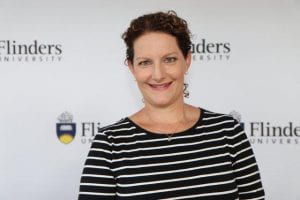
Lucy Lewis (PhD, BHSc (Hons), BPhysio, BAppSc) is an Associate Professor in Physiotherapy at Flinders University, and an Adjunct at the University of South Australia. She is a registered physiotherapist, and the Academic Lead for physiotherapy at Flinders University. Lucy is an experienced educator, and loves to find new and interesting ways to teach students about physiotherapy and health. Her research involves investigating ways to help adults to sit less and move more to improve their health and wellbeing, with a focus on middle-aged and older adults and active ageing. She is currently completing research projects on reablement in home and residential aged care, walking sports, and community participation of older people.
Sumana Baidya
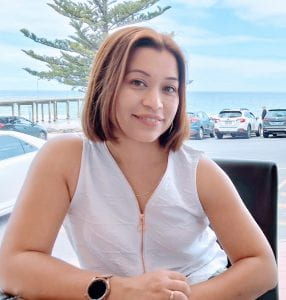
Sumana Baidya is a physiotherapist working as a clinical lead at ECH, one of the largest not-for-profit providers of integrated retirement living accommodation and ageing care services in community in South Australia. In addition to her clinical work, she is in her first year of a PhD program at Flinders University, Adelaide, where she is exploring reablement in the community setting with a focus on interprofessional delivery, ultimately improving their quality of life and overall health outcomes. She is incredibly passionate about the education and development of the next generation of physiotherapists and has spent several years teaching and training students at Kathmandu University School of Medical Sciences, Dhulikhel Hospital in Nepal. She believes that sharing knowledge and experiences with others is a crucial aspect of developing a strong and knowledgeable community that can provide the best possible care for older adults.
